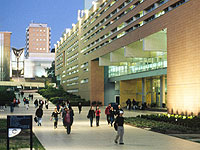|
||||||||||||||||||||||||||||||||||||||||||||||||||
| History from Crime: Investigating Europe's Past - CRIM2030 | ||||||||||||||||||||||||||||||||||||||||||||||||||

Description Subject Area: Criminology This course considers several notorious crimes and criminals in Europe between the late Middle Ages and the twentieth century: examples may include homicide, domestic viilence, sodomy, poaching, witchcraft, infanticide, or heresy. Despite initial appearances, however, History from Crime is not primarily about the history OF crime(s). Instead, this course explores some the ways in which historians have analysed and interpreted the documents generated by criminal justice systems. For a long time these records were used to track the development and operation of judicial institutions and police authorities. But — especially in the last twenty or thirty years — many scholars have turned to the records of prosecutions, interrogations, and litigation as a means to examine wider features of Europe’s social, political, and cultural past. Criminal justice records are an important means to find out about a largely illiterate population, and to explore issues that were poorly documented in any other sources. Exciting recent work includes investigations of verbal insults, microhistory, or changes in "ordinary" people's attitudes and values. |
||||||||||||||||||||||||||||||||||||||||||||||||||


